Waves
Written by Ingrid Chabbert
Illustrated by Carole Maurel
Translated by Edward Gauvin
Lettered by Deron Bennet
Archaia
French writer Ingrid Chabbert is a prolific children’s book author and in her first graphic novel, she tells the story of how that career started, or more precisely, the traumatic personal journey that led to her first book. It’s not about the struggle of a writer trying to make it or any kind of writing memoir. It’s about rebirth, recovery. It’s about grief. It’s about the multi-faceted experience of living life, where the awful and joyful intermingle and are perhaps impossible to separate.
Unnamed in the book, a couple has been attempting pregnancy and are clearly expecting the latest attempt to be a failure. A surprise pregnancy brings a cautious type of joy to the two women, but as the book progresses, we follow them through a series medical issues through the pregnancy, experiencing the emotional impact of their journey and the ways they cope with the stress of the troubled pregnancy process and the crushing sadness of the aftermath.
There’s a degree to which Waves seems critic-proof. The story is so personal, the impact so universal, and the presentation so open and raw that I can’t imagine being the person who reads it and has a quibble. Chabbert is opening up her heart and soul to the reader in Waves, not only representing her partner’s darkest personal moment, but also the memory of their son. Chabbert is able to present this memoir with poise and calm and never lets her words overtake the experience. She lets her reader react without her prompting. It’s a presentation that demands respect and sympathy.
Artist Carole Maurel manages to perform a miracle with her illustration work here, succeeding at two outcomes that seem exactly opposite. In one way, her work wraps the story around the reader, making it feel close and heavy. But in another, she also functions as an outside interpreter in such a way that rather than smothering you directly in Chabbert’s deep pain, she’s able to transform it into something that is bearable, even beautiful. A lot of the success of the book is to her credit, which is not to downplay Chabbert’s part in her own memoir, but instead to compliment Maurel’s ability to put it down on paper, to take something so deep within someone else and give it a presence for others to see and feel, while buffering it in such a way that we can also absorb and understand.
Ultimately Waves is a book about hope in the face of tragedy, and Maurel is also able to bring that to the forefront, making her presentation not one all-encompassing mood, but rather a journey through feelings and reactions. From the very straightforward normal life representations to the highly emotional scenes of pain and grief to the surrealist representations of Chabbert’s emotional state, Maurel composes a lush, alive, empathic vision of Chabbert’s experience.
This could have been an exercise solely in Chabbert finding closure for herself, and I’m sure that is part of it, but there’s much more going on here. Chabbert puts her own recovery out there to render the horrible, vicious way life works, where one moment you’re trapped in the depths, overwhelmed and pummeled, and then because of that experience, you look up and you see a road and it goes on for a while and you see clearly how you can walk its length. That is the essence of the life experience and Chabbert and Maurel have devoted a devastating work to illustrate what we all face in some manner.


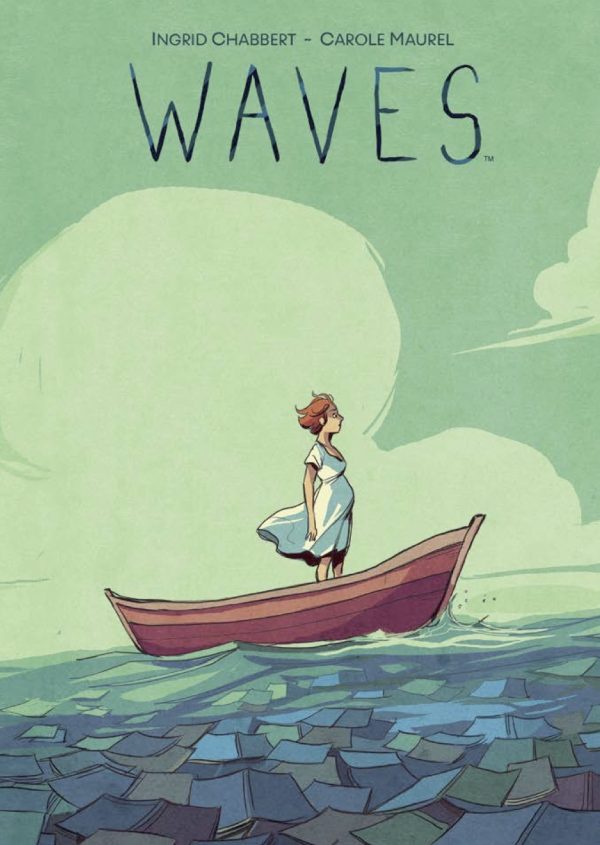
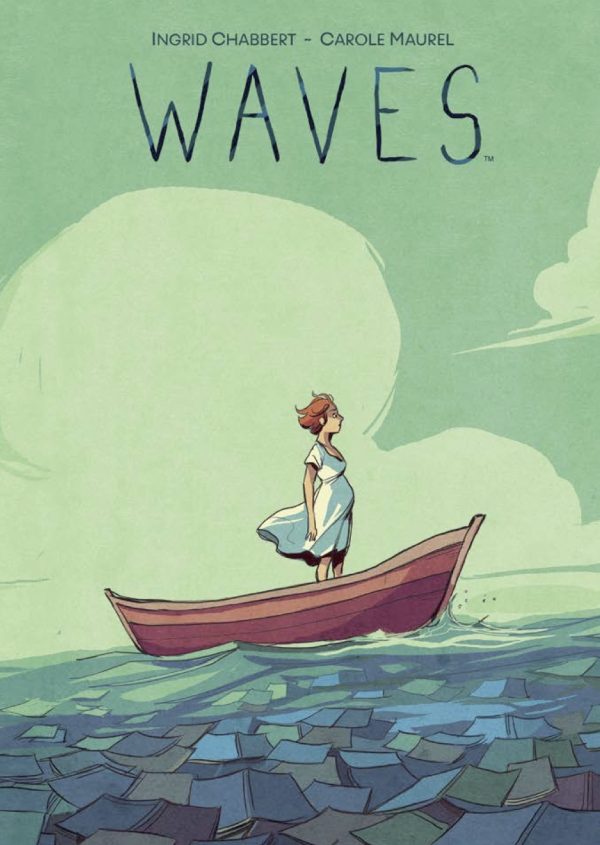
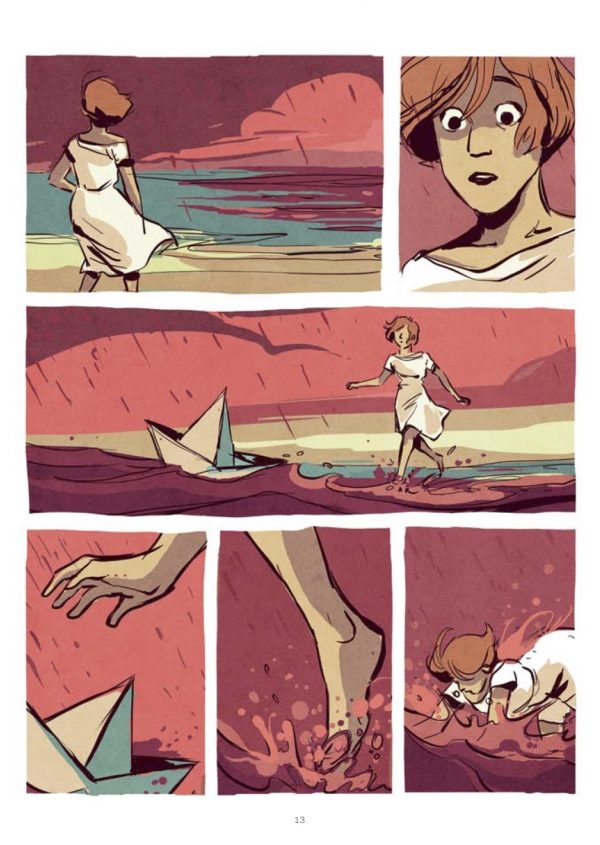
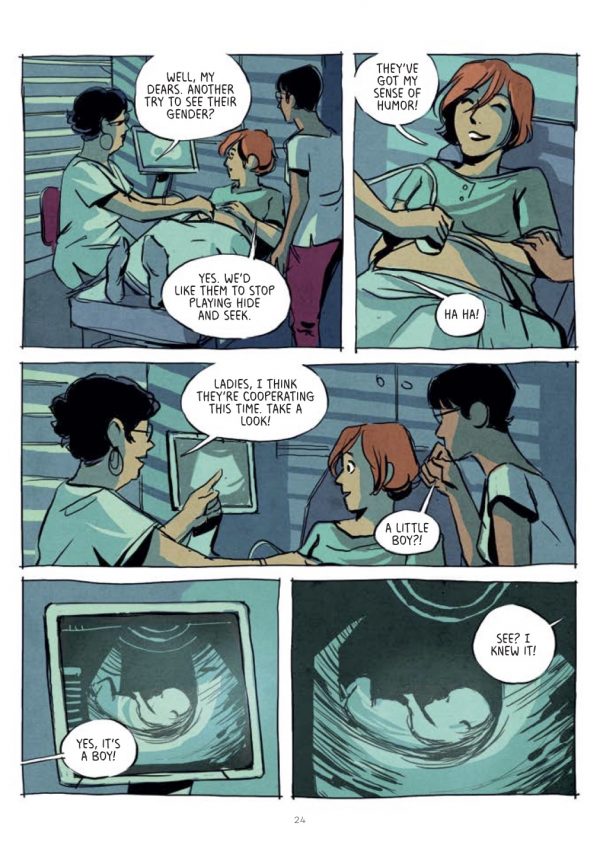
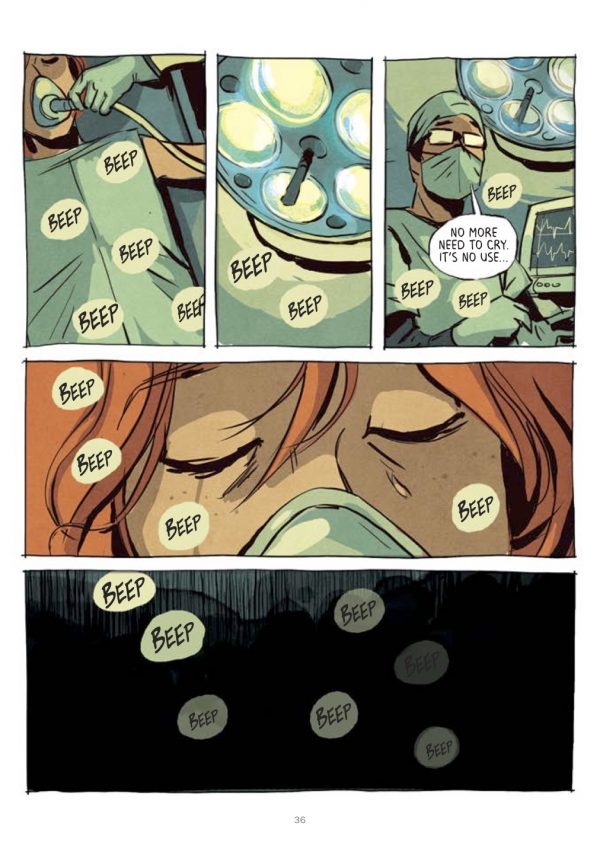

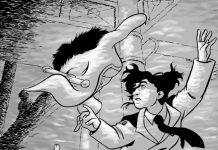




Thank you so so much… Ingrid
Comments are closed.